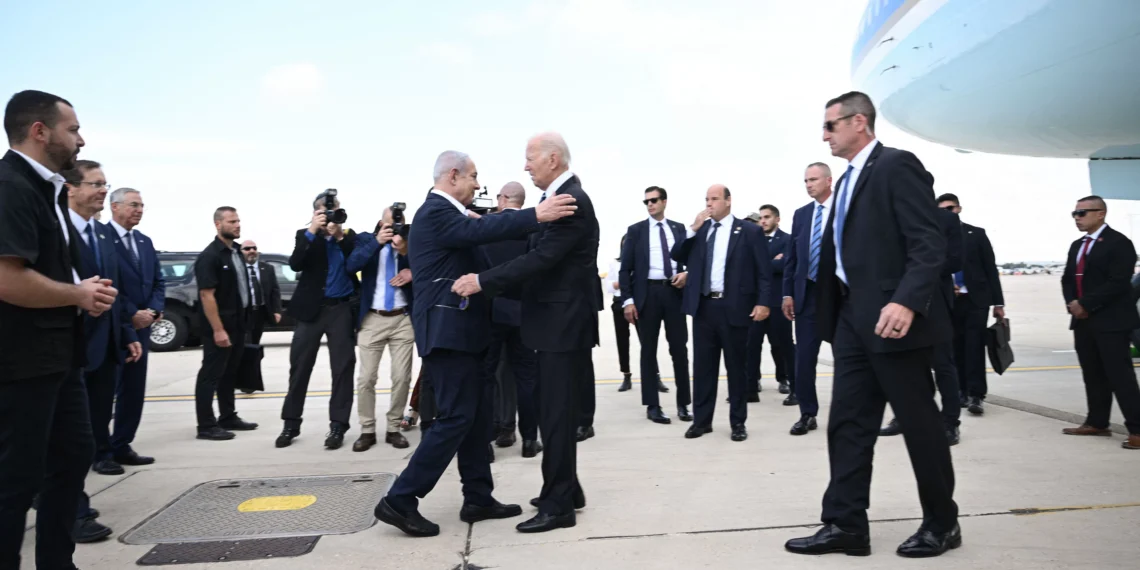Netanyahu’s Recklessness: A Result of Blind U.S. Support or Israel’s Own Agenda?
The recent escalation of tensions between Israel and Iran has once again brought the spotlight on the Middle East and the role of the United States in the region. The ongoing conflict between the two nations has been fueled by the actions of Israeli Prime Minister Benjamin Netanyahu, who has been accused of recklessness and warmongering. However, it is important to question whether this recklessness is a result of blind U.S. support or Israel’s own agenda.
For years, the U.S. has been a staunch ally of Israel, providing it with military and economic aid, and backing its actions in the region. This unwavering support has emboldened Israel to act with impunity, knowing that it has the backing of the world’s most powerful nation. However, this support has also shielded Israel from any consequences for its actions, allowing it to continue its aggressive policies without any accountability.
Netanyahu’s recent actions have only added fuel to the fire. His decision to withdraw from the Iran nuclear deal, despite opposition from the international community, has been seen as a reckless move that could potentially lead to a dangerous escalation of tensions in the region. The deal, which was signed in 2015, aimed to limit Iran’s nuclear capabilities in exchange for lifting economic sanctions. However, Netanyahu has long been a vocal critic of the deal, claiming that it does not do enough to prevent Iran from obtaining nuclear weapons.
In May 2018, Netanyahu presented what he claimed to be evidence of Iran’s secret nuclear program, which he said was proof that the country was not complying with the terms of the deal. This move was seen by many as an attempt to push the U.S. to withdraw from the deal, and it ultimately succeeded when President Trump announced the U.S. withdrawal from the deal in 2018. This decision not only isolated the U.S. from its European allies but also left the door open for further escalation between Israel and Iran.
Netanyahu’s actions have also been seen as an attempt to drag the U.S. into a war with Iran. By presenting Iran as a threat to global security, Netanyahu has been able to garner support from the U.S. and other countries for his aggressive stance towards Iran. However, it is important to question whether Iran truly poses a threat to global security or if this is just a ploy by Netanyahu to further his own agenda.
It is no secret that Israel and Iran have a long-standing rivalry, with both countries vying for regional dominance. Israel sees Iran as a threat to its security, given Iran’s support for militant groups like Hezbollah and Hamas. However, it is important to note that Israel has also taken aggressive actions towards Iran, including airstrikes on Iranian military bases in Syria. This tit-for-tat game has only escalated tensions between the two nations, with neither side willing to back down.
In the midst of this ongoing conflict, it is the innocent civilians who suffer the most. The recent airstrikes by Israel on Iranian targets in Syria have resulted in civilian casualties, further fueling the cycle of violence. It is clear that this conflict cannot be resolved through military means, and a diplomatic solution is needed.
The U.S. has a crucial role to play in de-escalating tensions between Israel and Iran. As a major player in the region, the U.S. has the power to influence both sides and push for a peaceful resolution. However, the U.S. must also be careful not to blindly support Israel’s actions, as this could lead to further destabilization in the region.
In conclusion, while U.S. support for Israel has undoubtedly played a role in Netanyahu’s recklessness, it is ultimately Israel’s own agenda that is driving this conflict. By presenting Iran as a threat and pushing for U.S. involvement, Israel is only furthering its own interests and disregarding the potential consequences for the region. It is time for all parties involved to prioritize diplomacy and work towards finding a peaceful solution to this ongoing conflict. Only then can we hope to see an end to the cycle of violence and instability in the Middle East.







